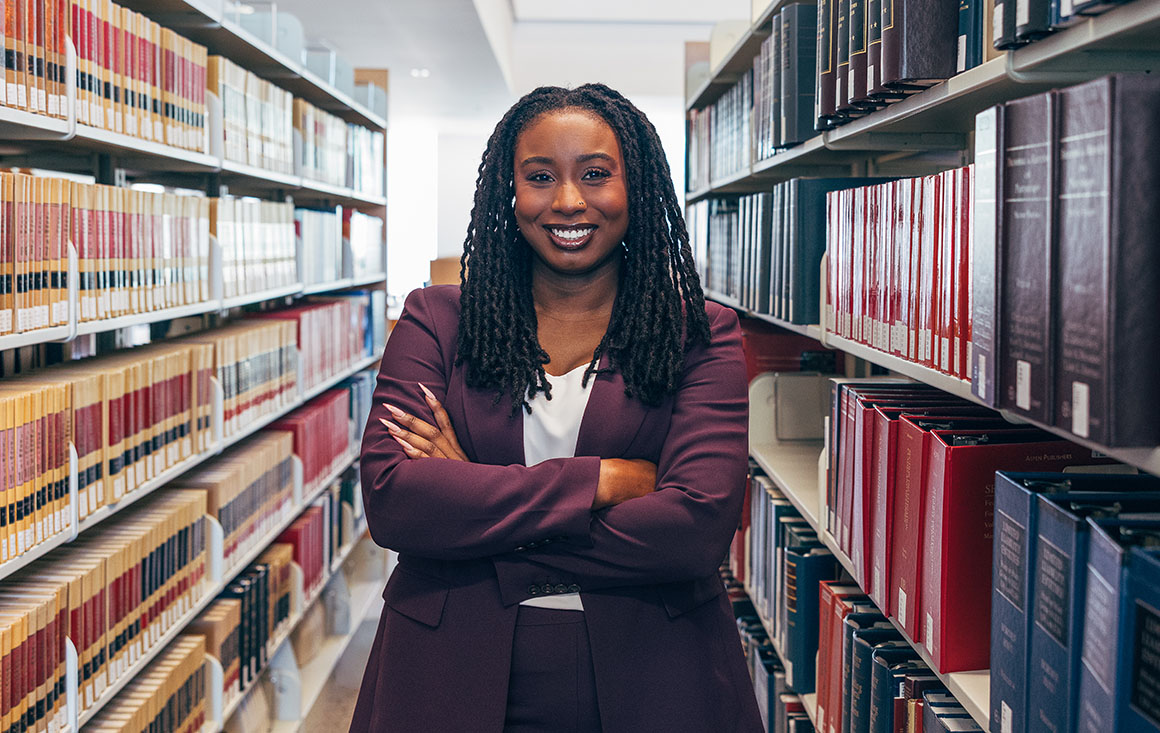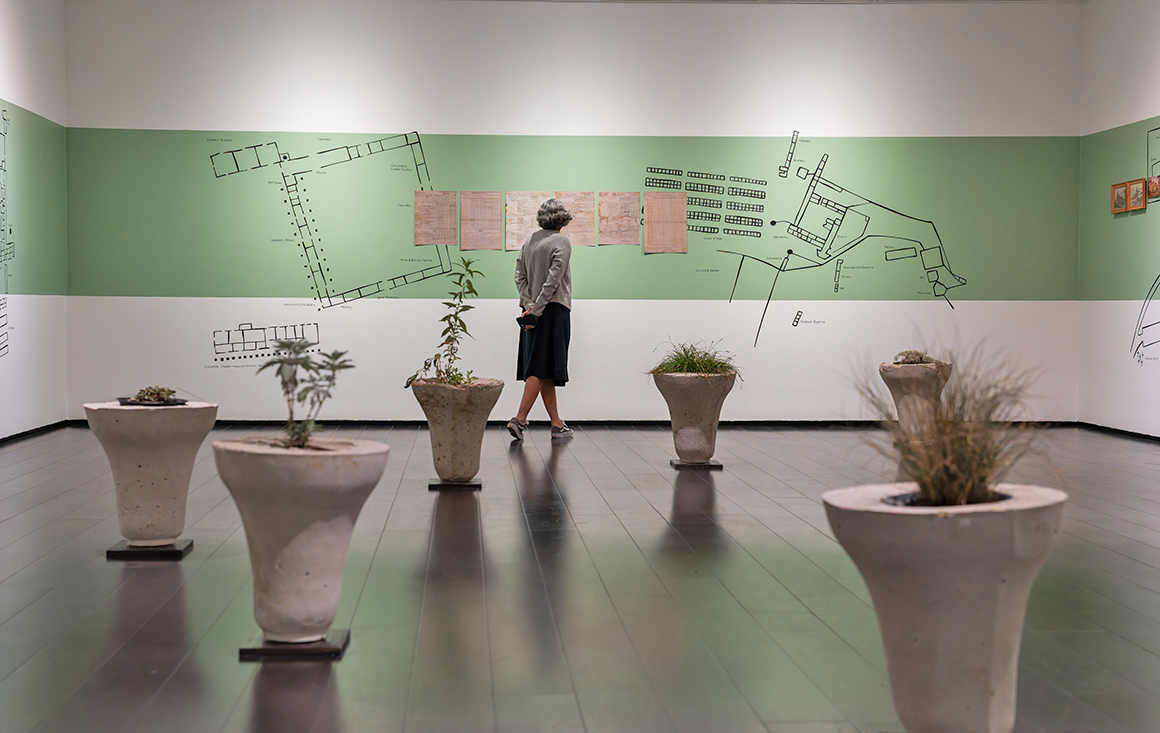‘A Community Where I Would Matter’
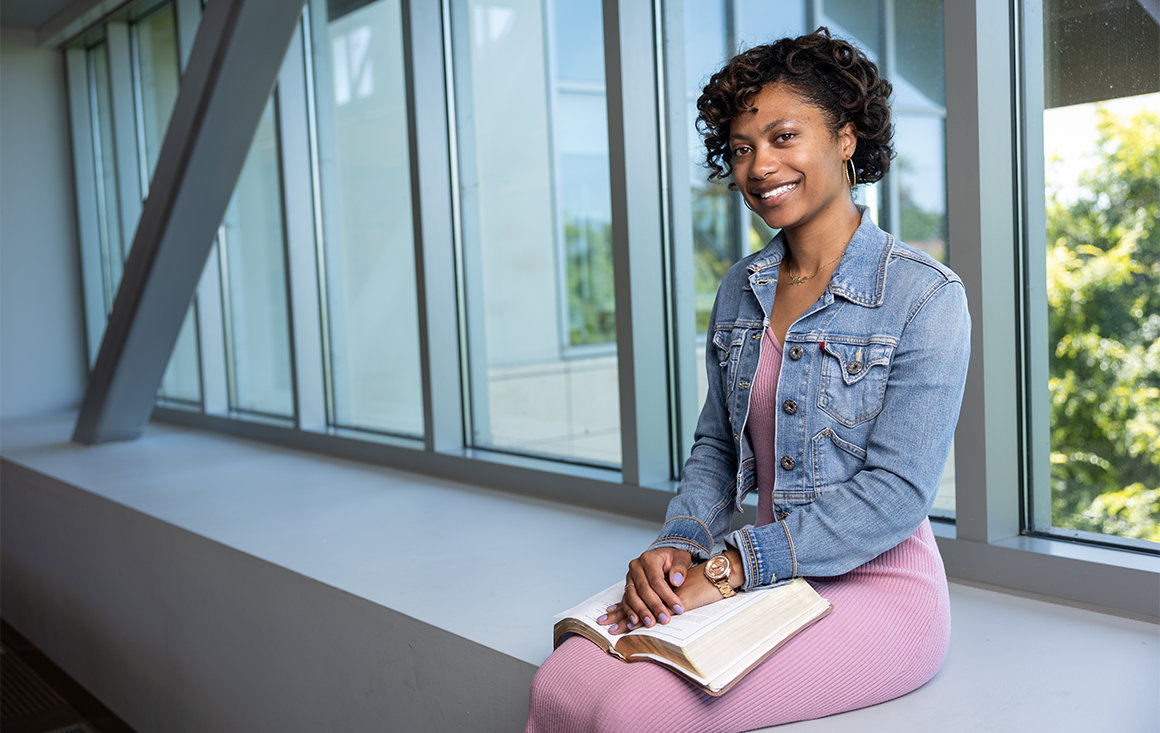
It was her faith in God that led Lady Elizabeth Roy ’24 to Santa Clara University. Now, it’s guiding her back home to Columbus, Ohio, where she’ll attend law school, with the goal of helping those who need it most.
That inspiration to pursue a legal career surfaced in fifth grade, when her class learned about capital punishment.
“We were assigned to write a paper about whether we thought the death penalty should be continued, or if we thought it violated a person’s constitutional rights,” Roy recalls. “Then we learned about Thurgood Marshall and his career, how he fought for certain rights, like Brown v. Board of Education, and how he became a Supreme Court justice.”
That’s when she knew she wanted to be a lawyer. Later, at Cristo Rey Columbus High School, Roy joined the debate club, and through the school’s work study program, interned at two different law firms. She went on to become her class valedictorian.
Accepted to 11 universities, most offering generous scholarships, Roy says she ultimately chose SCU because “it felt like Santa Clara was a community where I would matter; where I would get to know my professors, to have that connection. Sometimes God will just open your eyes to a whole opportunity you didn’t consider.”
Roy, who graduated June 15, says that Santa Clara “teaches you things you didn’t know about yourself. I grew a lot here—both mentally and spiritually.” To Roy, the University helps students learn skills that will prepare them to work and thrive in the real world. “And now I’m prepared to go to law school because of my classes, and also because of my professors, who have fostered a sense of independence in me.”
Below, we asked Roy about other important lessons she learned at Santa Clara.
How would you say SCU helped to prepare you for law school?
When I got here, I reached out to the pre-law program, and they recommended that I follow the Law and Social Justice Pathway, which is a cross-disciplinary program that focuses on social justice issues from a legal perspective. I took classes that would hone my skills and knowledge related to law. For example, I took an English class on argumentative and persuasive writing, and a Greek classics class on democracy. And during my sophomore year, I joined the mock trial club.
Thanks to Dr. Simone Billings in the English Department, I was put in contact with San Francisco County Superior Court Judge Michael Rhoads ’06, who offered insights about a legal career and helped me better understand the role a judge plays, along with the experience needed. He also enlightened me about how vital it is to try and get experience as both a defense attorney and a prosecutor, which aligns with a previous conversation I had with a judge back home who said that you can make a difference on either side. So I wouldn’t be opposed to having both experiences.
What led you to major in psychology?
I decided on psychology because if you’re practicing law involving people versus corporations, you should really understand the behavioral mindset of those you are either representing, or prosecuting.
I’ve always been interested in behavioral analysis, especially from watching “Criminal Minds.” It taught me about FBI profilers, a career I didn’t know about, so if I ever chose not to practice law, it’s an opportunity to do something related to law as a fallback. After I decided to come to Santa Clara, I also learned that one of the show’s stars, Shemar Moore ’92, was a student here. I was like, “Oh, wow! Here went here! That’s so cool!” Close-up of Roy's 'Lady E' necklace.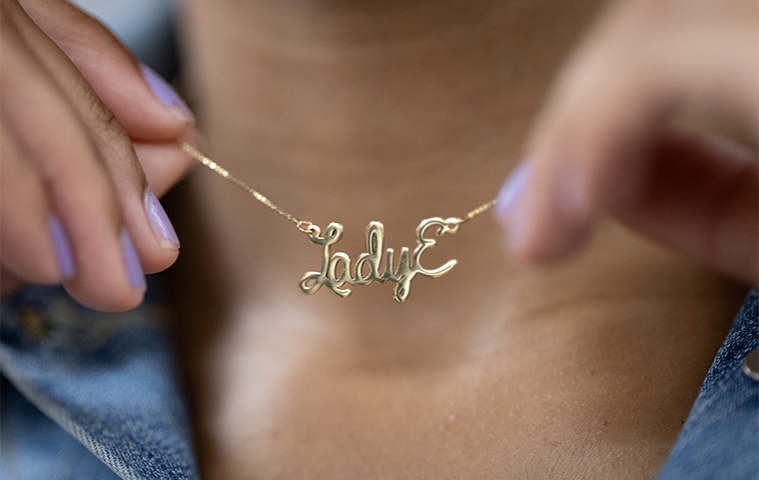
Can you talk about some defining moments for you at SCU?
A Miller Center Fellowship in Baltimore, and an Ignatian Center immersion in the Dominican Republic, are two holistic experiences I could have only had at Santa Clara.
For the fellowship, I worked with a non-profit called Innovation Works, which addresses the racial wealth divide in Baltimore by helping different social enterprises succeed and also make a positive impact in their communities.
Ignite Capital, which is Innovation Works’ social impact investment fund, hosts a showcase, kind of like “Shark Tank,” where individuals who have a business pitch to investors who are potentially willing to invest in that business. We conducted research to better understand how small business owners can be helped in other ways by Ignite Capital. It was a two-person team, myself and Chelsea Ebisuya ’24. I think we made a difference, and it showed me how my voice—beyond being in a courtroom—can still impact people’s lives in real ways.
The immersion trip to the Dominican Republic was during Spring Break. I went to learn more about the anti-Blackness, or anti-Haitian, sentiment that’s happening there. We learned about how people of Haitian-Dominican descent have their identification papers taken from them, so they’re not considered a citizen of any country. They don’t have the same protections that other citizens do, so they’re forced to work jobs on Dominican sugar cane plantations, basically making, I believe, $4 for every ton of sugar cane they can produce. When you consider their rent was like $15, it’s effectively a form of slavery.
When we got back, I wondered: What can I do? So I presented a spoken word about it at Santa Clara’s Unity Night, and hosted fundraisers to raise awareness. We also wrote a grant which was officially approved earlier this year. I’m excited that these workers will have that grant money because it’s a very disheartening situation.
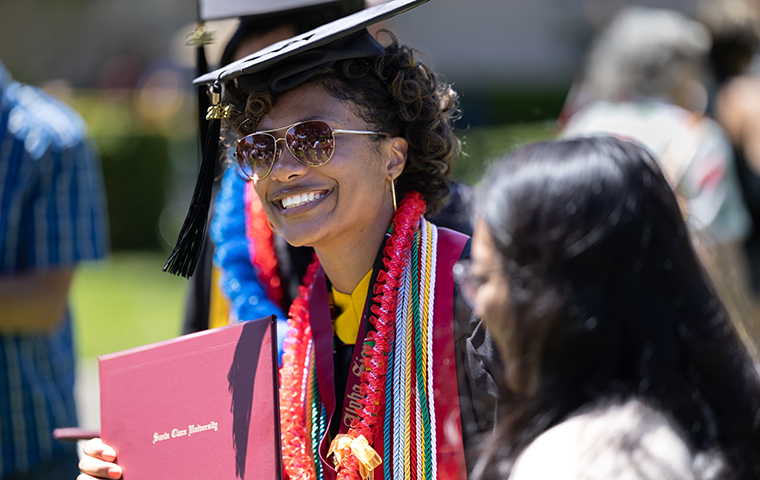
During your time at Santa Clara, you also helped fellow students as a Peer Advisor, and as a writing partner at The HUB Writing Center. What drew you to those jobs?
Peer Advisors did a lot for me during my first and second years here when I was trying to understand what classes I should take, or how I should structure my schedule. It was a great resource for me, so I wanted to give back and help students figure out a four-year plan, how to pick a class, or a professor.
As for The HUB, I’ve always liked writing; when I was young, I’d write my own short stories. Being a psych major, I’d write papers that could become research. At The Hub, I helped people organize their thoughts and refine their ideas for their assignments.
For your senior thesis, you focused on the U.S. penal system. What did you argue in your paper?
I wrote about how the penal system is ruining humanity in the way we view people. Basically, you can’t make someone better by punishing them, or torturing them. They haven’t become better citizens because of their experience in prison; it’s actually negatively affected them. I believe we need to create a better system that is focused on both transformation and aid.
Psychology majors learn how people think, feel, and behave. By researching underlying psychological processes, they gain skills for a future in any career.
Learn more about majoring in psychology in the College of Arts and Sciences.
